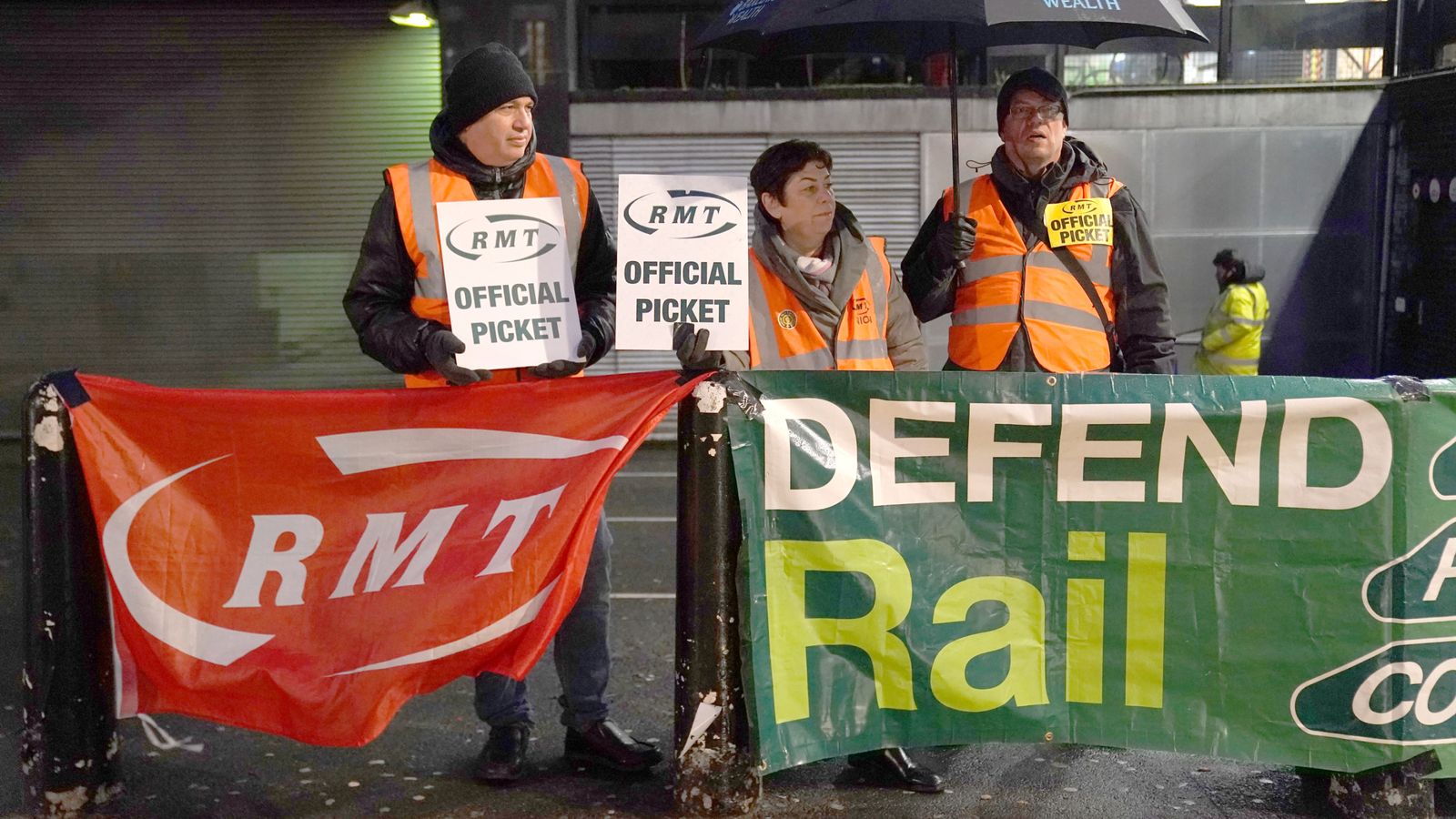lol and just to irritate you further... I am sorry but I'm not convinced by the RMT's safety agenda. It started to gain prominence during the Northern guards dispute and is trotted out for each and every argument about every subject since then. It is too convenient and feels like the boy crying wolf.
I am convinced on their agenda to protect their members - and that is all well and good. That includes the safety of their members.
There are a number of bodies responsible for safety of passengers, not least the TOCs and NR themselves. By all means participate in those bodies but dont assume the final decision on these matters is yours. We have the safest form of transport in the world and that is great and there is a balancing act between keeping it like that and gold plating it for no additional value and to make the correct judgement call on that needs a balanced and non-partisan view.
On the railways, yes, the employer/company is responsible for the safety of employees, passengers and other members of the public that come into contact with the railways. The regulator (the ORR) is also responsible for ensuring that the railway companies comply with certain standards and regulations. Plus the normal H&S laws apply.
No, the RMT union itself is not legally responsible for the safety of employees, passengers or other members of the public. However, RMT representatives (and other unions) do work with the railway companies with regards to discussions on safety. Both with respect to employees and for passengers and other members of the public. No one wants another person to suffer an injury, or death. But at the same time, no one person can be an expert in everything. So if a union representative (who will have received direct feedback from the members ‘on the ground’) has concerns about how a job is being done, or a proposed change in how a job is done, said representative will raise these issues. It’s then up to the company on how they wish to proceed. But, by the issue being raised and documented, it encourages the company to take these issues seriously. That alone improves safety overall.
Remember, safety and reliability are interwoven along with good maintenance, good practice, good training, management of fatigue and many other elements. As well as the things that are very visible to the passengers, there are lots of activities that most passengers may not be aware of. Yes, mostly these are engineering activities. But also operational decisions.
Railway unions also have meetings with the ORR to discuss safety issues. Some relate to issues that affect staff and some relate to the safety of passengers and other members of the public that come into contact with the railways.
You are welcome to your views, but please don’t just go on the limited items that are banded around in public. The railway system is extremely complex behind the scenes.
Almost of the train travel I do is DOO services. I haven't used a ticket office in years. I'm not seeing this terrible danger that's supposed to be happening.
I’m not a driver, or train crew, or station staff, or ticket office staff, indeed, I don’t work for a TOC so why do you think I was talking about DOO or ticket offices in particular? I’m not interested in talking about DOO in this topic, one, because DOO has been talked about to death on these forums in other topics, and two, I don’t work for a TOC.
The railway is currently financially unsustainable. Its financiers (government) are bust
No change there then, the railways and the government have been financially unsustainable/bust since the 1940s. The railways have required government funding since then. And this country has been in debt for at least that length of time.
its customers are on strike (because employees thought strikes don't consequences) and it is stuck with a deadweight of unresolved issues like DOO and ticket offices where the can has been kicked down the road for years.
If there was ever a time when it was imperative as an 'exception' not to agree no compulsory redundancy was now.
As I mentioned, indulging this infantile and reality denying proposition (which cannot exist in the productive economy) is inevitably indefinite as it has already become a red line for this and every future negotiation.
It isn't possible to exit people by other means when it is not their ability to meet the requirements of their job, but the requirements or existence of their job that has changed.
Which they do, as sure as night follows day, except in the Jackanory world of the RMT.
Sorry, you lost me somewhere in that bit that I quoted. But if a ‘no compulsory redundancy’ deal was so bad, one, why have these been previously agreed by the railway in the past, and why are such arrangements being included by the railway this time around?
It wasn't intended to be aimed at railway staff. I understand the role of the union and I am suggesting that they might perform it better if their stance was different. I don't think they are anti-passenger - perhaps my phrasing was wrong - but they give off a vibe of not really caring about the passenger. The only time they look after the passenger is when they play the safety card so there is little bit of having your cake and eating it perhaps?
The RMT have run or been involved with campaigns in the past that were about trying to improve the railways for the benefit of passengers. For example campaigns about the increases/costs of fares.

